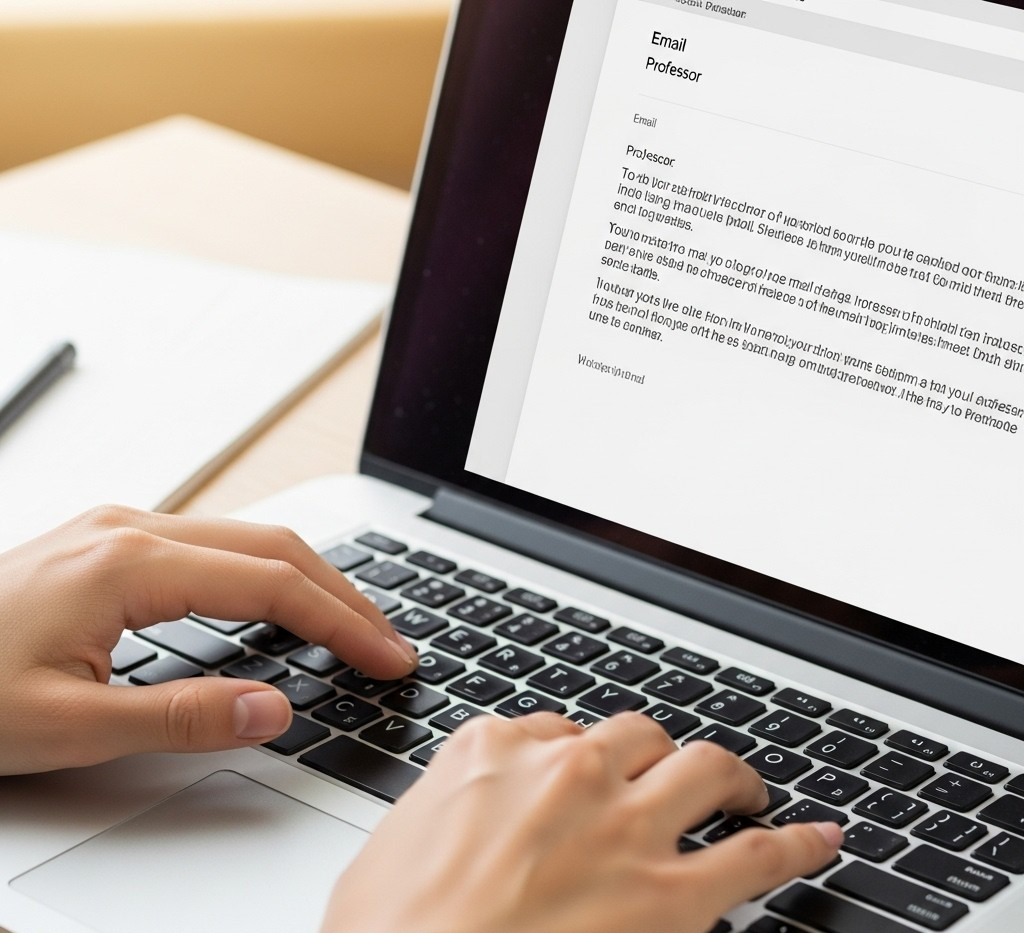Embarking on a journey to study in China on a fully-funded scholarship is an incredibly exciting prospect, and the China Scholarship Council (CSC) scholarship is often the golden ticket. For the September 2026 intake, securing an acceptance letter from a Chinese university professor can significantly boost your application. This isn’t just a formality; it’s a strategic move that demonstrates your proactive approach, academic alignment, and genuine interest. In my experience advising countless aspiring scholars, proactively reaching out to professors is one of the most impactful steps you can take.

Why an Acceptance Letter Matters for Your China Scholarship Application
While not always a mandatory requirement for all CSC scholarship types or universities, an acceptance letter from a professor at a Chinese university can be a game-changer. It signals to the CSC and the university admissions committee that a faculty member is keen to supervise your studies, indicating a strong academic fit and a higher likelihood of success in your chosen program. For PhD applicants, it’s often an essential component, as professors play a central role in recommending candidates for doctoral programs [Source: Scholarship Roar]. Even for Master’s applicants, it can give you a significant edge, especially in competitive programs or top-tier universities.
The Strategic Timeline: When to Start Emailing Professors for September 2026 Intake
The application window for the CSC scholarship typically opens in late autumn or early winter for the following academic year. For the September 2026 intake, you should ideally start emailing Chinese university professors for an acceptance letter from October 2025 onwards, extending through early 2026. This proactive approach gives you ample time to identify suitable professors, send well-crafted emails, and follow up.
Think of it like planting a seed – the earlier you start, the more time it has to grow. Many professors receive a large volume of inquiries, so getting on their radar early can make a difference.
Researching Your Ideal Professor and University
Before you even think about drafting that first email, thorough research is paramount. This isn’t a spray-and-pray approach; it’s about finding the right academic home for your aspirations.
Step 1: Define Your Academic Niche
Clearly articulate your research interests and academic background. What specific topics within your field genuinely excite you? What kind of research project do you envision undertaking in China? This clarity will help you identify professors whose work aligns perfectly with yours.
Step 2: Identify Target Universities
Next, pinpoint Chinese universities known for excellence in your chosen field. Look beyond just the top-ranked institutions; consider universities that have strong departments or research centers related to your specific area of study. The official websites of Chinese universities are excellent resources. Many universities have dedicated “International Students” or “Admissions” sections that list faculty members and their research profiles.
Step 3: Dive into Professor Profiles
Once you have a list of potential universities, delve into the faculty directories of relevant departments. Look for professors whose research publications, projects, and academic backgrounds strongly resonate with your interests. Pay close attention to their recent work – has anything they’ve published lately particularly caught your eye?

Crafting the Perfect Email to Chinese Professors
Your initial email is your first impression, and in a competitive landscape, it needs to be impactful. Aim for clarity, conciseness, and professionalism.
The Subject Line: Your First Hook
A compelling subject line is crucial for getting your email opened. It should be clear, to the point, and immediately convey your purpose.
Examples:
- “Inquiry regarding PhD/Master’s Supervision for CSC Scholarship – [Your Name] – [Your Research Area]”
- “Prospective CSC Scholar: Interest in [Professor’s Research Area] for September 2026 Intake”
The Opening: Respectful and Engaging
Address the professor by their formal title (e.g., “Dear Professor [Last Name]”). Start by introducing yourself briefly and stating your purpose – you are seeking their supervision for a Master’s or PhD program under the China Scholarship Council for the September 2026 intake.
The Body: Your Academic Story
This is where you make your case.
- Highlight your academic background: Briefly mention your current degree, university, and relevant achievements (e.g., GPA, awards, significant coursework).
- Express genuine interest in their research: This is critical. Don’t just say you’re interested; demonstrate it. Mention specific papers or projects of theirs that you’ve read and explain why they intrigue you. How does their work connect with your own academic goals?
- Briefly outline your proposed research: Even if it’s a preliminary idea, provide a concise overview of your research interests and how they align with the professor’s expertise. This shows you’ve done your homework and are serious about your studies.
- Mention your intention to apply for the CSC Scholarship: Clearly state that you are seeking an acceptance letter to support your CSC scholarship application. This clarifies your funding source.
The Closing: Professional and Proactive
Thank the professor for their time and consideration. Politely express your hope for a positive response and offer to provide further documents or information. Include a professional closing like “Sincerely” or “Best regards,” followed by your full name, current university, and contact information.
What to Attach (and What Not To)
Essential Attachments:
- Curriculum Vitae (CV)/Resume: A well-organized CV highlighting your academic history, research experience, publications (if any), and skills.
- Academic Transcripts: Unofficial transcripts are fine for initial inquiries, but be ready to provide official ones if requested.
- Research Proposal (if applicable for PhD/Master’s by Research): A concise, well-structured research proposal demonstrates your ability to plan and execute research.
Optional (if highly relevant)
- English Proficiency Certificate (IELTS/TOEFL) or Medium of Instruction (MOI) certificate: If your previous degree was taught in English and you don’t have IELTS/TOEFL, an MOI certificate can be useful.
- Sample of written work: If you have a published paper or a strong academic essay, you can offer to send it upon request.
Avoid: Sending an overwhelming number of attachments in the initial email. Keep it focused.
Proofread, Proofread, Proofread!
A single typo or grammatical error can undermine your professionalism. Carefully proofread your email multiple times. Ask a friend or mentor to review it as well.
Sample Email Structure
Subject: Inquiry regarding PhD/Master's Supervision for CSC Scholarship - [Your Name] - [Your Research Area]
Dear Professor [Professor's Last Name],
My name is [Your Name], and I am a [Your Current Degree Level] student from [Your University]. I am writing to express my strong interest in pursuing a [Master's/PhD] degree in [Your Specific Field] at [University Name] under your esteemed supervision, with the aim of applying for the China Scholarship Council (CSC) for the September 2026 intake.
I have been following your research on [mention a specific research area or paper, e.g., "the application of AI in sustainable urban development" or "your recent publication on [Paper Title]"], and I am particularly impressed by [mention a specific finding, methodology, or impact of their work]. My own academic background in [Your Field] and my research experience in [mention a specific project or area] align closely with your work. For example, my [thesis/project] on [briefly describe your thesis/project] has [mention a key outcome or skill developed].
I am keen to explore [briefly state your research interest or a potential research question that aligns with their work]. I believe that my [mention key skills, e.g., analytical skills, quantitative methods, fieldwork experience] would enable me to contribute meaningfully to your research group.
I have attached my Curriculum Vitae and academic transcripts for your review. I would be honored to discuss my qualifications and research interests further at your convenience. Obtaining an acceptance letter from you would significantly strengthen my CSC scholarship application.
Thank you for your time and consideration. I look forward to hearing from you.
Best regards,
[Your Full Name]
[Your Email Address]
[Your Phone Number (optional, with country code)]
[Your LinkedIn Profile (optional)]

Following Up and Handling Responses
Patience is Key: Professors are busy individuals. Don’t expect an immediate response. Give them at least a week, sometimes two, before sending a polite follow-up email.
Crafting a Follow-Up: A simple, concise follow-up reminding them of your previous email is sufficient. Reiterate your interest and offer to provide any further information.
Responding to Different Outcomes:
- Positive Response: If a professor expresses interest, be ready to provide further details, a more detailed research proposal, or even engage in a video interview. Follow their instructions precisely.
- No Response: Don’t be discouraged. It’s common. Move on to other potential supervisors.
- Negative Response: Thank them for their time and move on. It’s part of the process.
Leveraging Social Media (Strategically)
While direct email is the primary method, social media can offer supplementary insights or connections.
Fully Funded PhD in Sustainable Agriculture in Germany (Starting 2026)
PhD Scholarship to Develop Alternatives to Animal Testing in Germany for 2025
FAQ
Q1: Is an acceptance letter mandatory for all CSC scholarship types?
An acceptance letter is not strictly mandatory for all CSC scholarship programs, especially for some undergraduate or general scholar programs. However, it is highly recommended and often crucial for Master’s and PhD programs, as it significantly strengthens your application by showing a faculty member’s endorsement [Source: Scholarship Roar].
Q2: What if I don’t receive a response from a professor?
It’s common for professors to be busy and not respond to every email. Don’t be discouraged. After a week or two, send a polite follow-up. If there’s still no response, move on to other potential supervisors. Keep your options open.
Q3: How many professors should I email?
It’s advisable to email multiple professors (e.g., 5-10 or more) whose research aligns with yours. This increases your chances of receiving a positive response, as acceptance rates can vary.
Q4: What documents are typically required by professors for an acceptance letter?
Professors usually require your Curriculum Vitae (CV), academic transcripts, and a concise research proposal or statement of purpose outlining your research interests. They may also ask for an English proficiency certificate or a sample of your written work.










